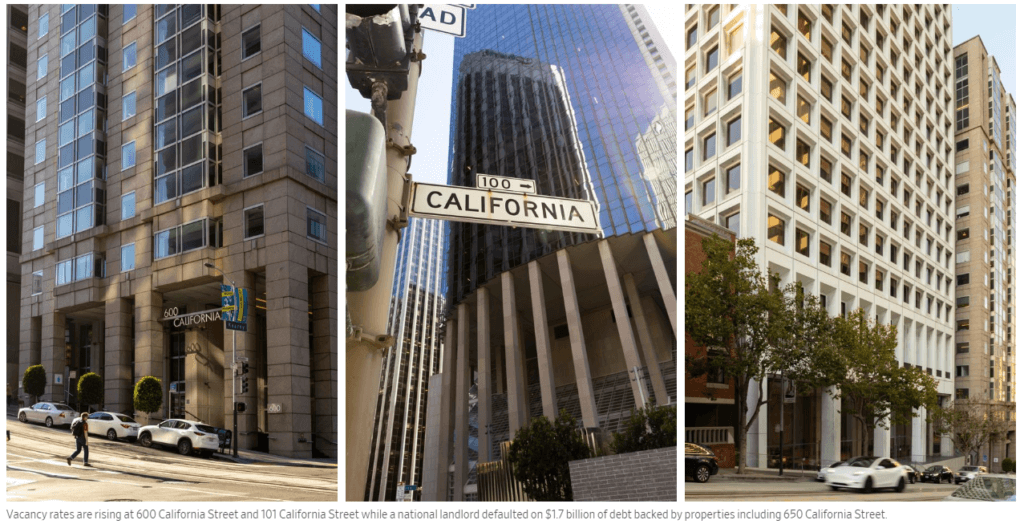
My office building is on the front page of the WSJ finance section… unfortunately not in a good way. But there’s personal finance lessons to be extracted.
As has been exhaustingly documented, SF downtown has been very slow to recover from the pandemic.
Anecdotally, I can tell you it’s coming back slowly but surely.
But if you’re paying the mortgage on a big, old office building and only 75% of your tenants are paying rent, well… you’ve got a problem and slowly, but surely ain’t gonna fix it.
I got 3 personal finance lessons from the WSJ article.
1. MITIGATE CATASTROPHIC RISK
Who woulda thunk a global pandemic would reduce office capacity from nearly 100% to 67% in 3 short years?
Similarly, no one expects to get into a debilitating accident that brings your entire career to a sudden and unexpected stop – and with it – your ability to earn even a fraction of what you make now.
So if you ain’t got it yet, PLEASE get as much long-term disability insurance as they’ll sell you.
2. LIVE WELL BELOW YOUR MEANS
In corporate finance, it’s called getting overleveraged. Simply put, you borrowed too much freakin’ money!
I don’t pretend to be a commercial real estate expert, but it seems to me that a 33% drop in revenue should result in some lean years, but it shouldn’t put you out of business.
The average savings rate of our Financial Zen Members is 25%.
That means, if the stuff hits the fan and their income drops 33%, then they’ll only need to cut 8% of their living expenses which should be pretty manageable.
The more you save, the further below your means you’re living and the more prepared you’ll be for the unexpected.
3. MAINTAIN LIQUIDITY
This last one wouldn’t have helped SF commercial real estate, but it is related to risk management.
Liquidity, liquidity, liquidity.
We need a 6-month emergency fund to weather short-term storms.
I keep 6 months of cash for my personal expenses, as well as 6 months of liquidity to cover my business expenses.
If our revenue gets cut to $0, I can still pay both our business bills and personal bills until next April.
No layoffs, no sleep lost, no assets sold at a loss.
My Emergency Fund isn’t a slush fund.
YOUR FAMILY, INC.
Your family may not be incorporated, but smart financial decisions for businesses really aren’t so different from smart personal decisions.
Run your family finances like a business and you won’t find yourself exhibited as a warning in the Wall Street Journal.
